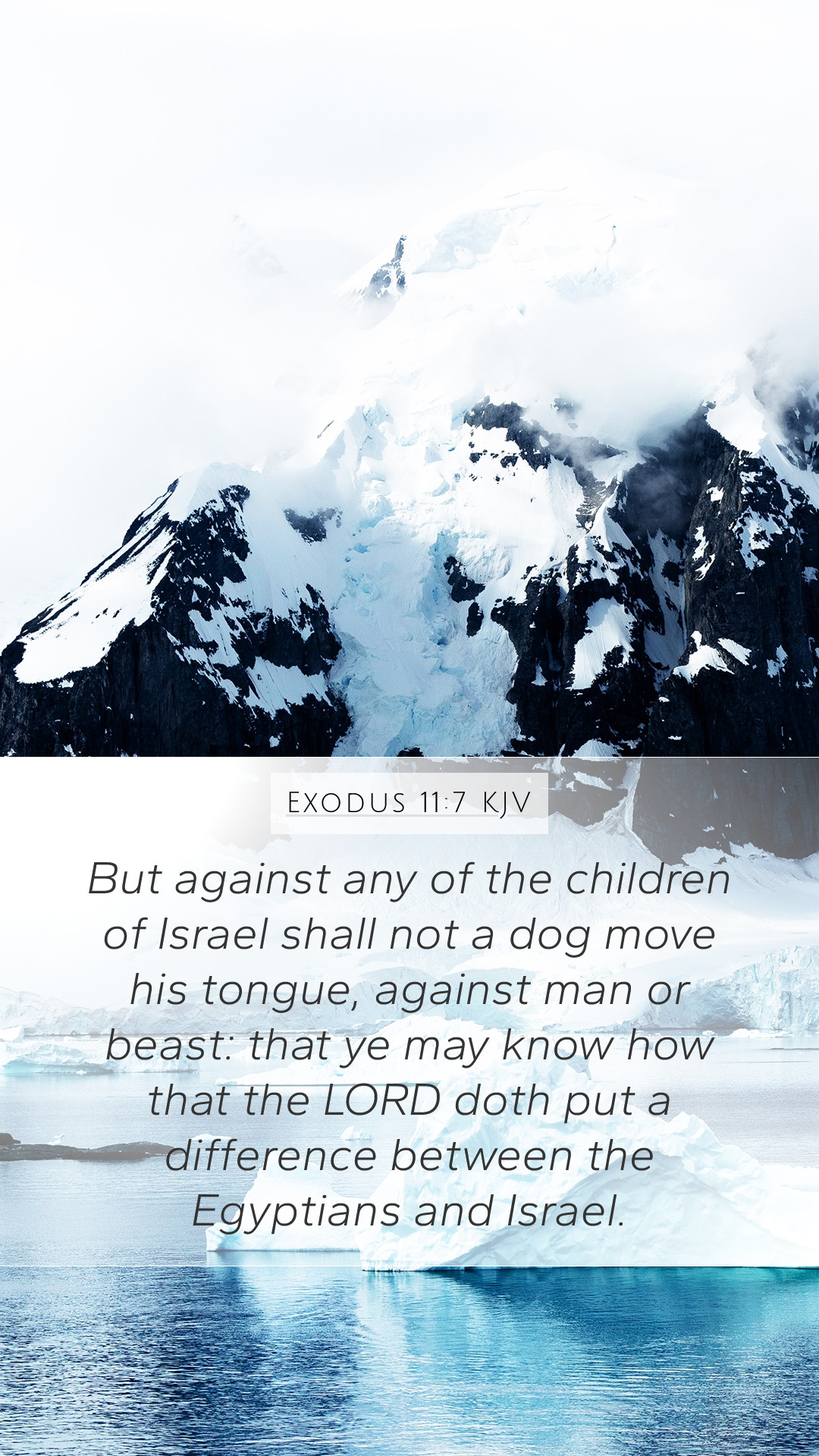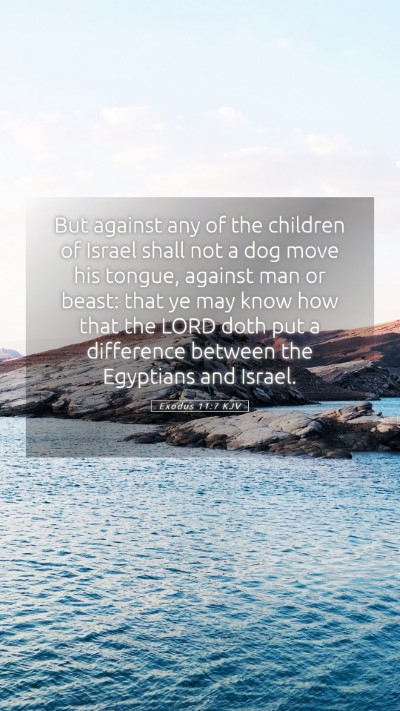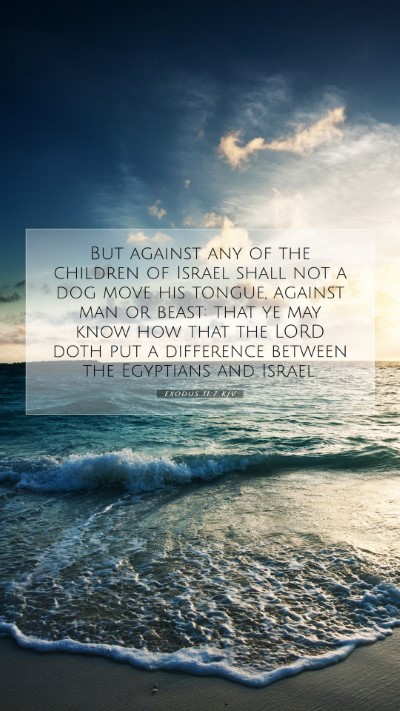Understanding Exodus 11:7
Exodus 11:7 states: "But against any of the children of Israel shall not a dog move his tongue, against man or beast: that ye may know how that the Lord doth put a difference between the Egyptians and Israel."
Meaning of Exodus 11:7
This verse emphasizes the distinction made by God between the Egyptians and the Israelites, particularly during the series of plagues that ultimately led to the Exodus. It highlights God's protection over His people while simultaneously showcasing His judgment upon Egypt.
Bible Verse Commentary
According to Matthew Henry, this passage reveals God's sovereign power and His ability to protect His chosen people, even amidst turmoil. He points out that the phrase "not a dog move his tongue" symbolizes a complete silence and inaction of the oppressors, illustrating God’s omnipotent defense over Israel.
Albert Barnes comments that this was a sign of God's unique favor towards the Israelites. He denotes that the fear imposed on Egyptian animals, metaphorically referenced by "dogs," underscores the utter helplessness of the Egyptians compared to God's might aimed at preserving His people.
Adam Clarke elaborates on the symbolism involved in this verse. He explains that dogs were often regarded as unclean animals, and their inactivity (not moving their tongues) signifies that nothing untoward would happen to Israel. Therefore, this verse not only represents physical protection but denotes a spiritual safeguard from the onslaught intended for those who defied God’s command.
Contextual Analysis
To fully understand Exodus 11:7, it is critical to consider the historical context surrounding the exodus of the Israelites from Egypt. This verse is situated during the final plague, the death of the firstborn, which served as a precursor to their liberation from slavery. The contrast between the fate of the Egyptians and the protection of God’s chosen people is a critical theme throughout the Exodus narrative.
Applications of the Verse
This verse can be applied to daily life in that it reassures believers of God's protective nature and the discernible difference He makes in the lives of those who are faithful. It encourages individuals to seek refuge in God's promises and bolsters the understanding that He provides sanctuary amidst adversity.
Key Takeaways
- Divine Protection: God distinguishes His followers and shelters them.
- God’s Sovereignty: His power is evident in the contrast between the oppressor and the oppressed.
- Symbolism of Fear: The silence and fear of Egyptian dogs symbolize failed authority over God’s people.
Scripture Cross References
Additional verses that may augment the understanding of Exodus 11:7 include:
- Exodus 12:13 - "And the blood shall be to you for a token upon the houses where ye are: and when I see the blood, I will pass over you, and the plague shall not be upon you to destroy you..."
- Psalm 105:37 - "He brought them forth also with silver and gold: and there was not one feeble person among their tribes."
- Romans 8:31 - "What shall we then say to these things? If God be for us, who can be against us?"
Conclusion
Exodus 11:7 can be seen both as an assurance of God's unwavering protection for His people and as a powerful reminder of His sovereign ability to distinguish between those who serve Him and those who do not. This verse serves to inspire and encourage believers to trust in God's promises and recognize the significance of their covenant relationship with Him.
For further study, consider engaging in bible study groups or utilizing bible study tools and bible study resources that delve deeper into the interpretations and meanings of various scriptures.


